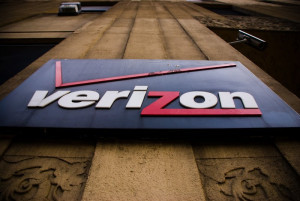FCC Commissioner Says She's Not Happy With Verizon's ETF And Billing Explanations
At least one official with the FCC is not impressed by Verizon’s latest explanations of its Early Termination Fees (ETFs) and Mobile Web billing practices. Commissioner Mignon Clyburn released a statement (pdf) last night where she called Verizon’s explanation “unsatisfying” and “troubling,” and she closed with the fighting words, “I look forward to exploring this issue in greater depth with my colleagues in the New Year.”
The FCC asked Verizon to explain why it doubled the ETF for smartphone customers last month to $350, and why at month 23 of a 24-month contract the ETF is still a steep $120. The FCC also asked Verizon to respond to accusations that it deliberately charges customers who accidentally access mobile services via buttons that can’t be disabled or remapped.
Explaining the $350 ETF
Verizon’s response to the FCC was a 13-page letter (pdf) delivered on December 18th. On pages 8 and 9, Verizon explains the $350 figure in part by saying that the ETF doesn’t just cover the cost of subsidizing the phone. This is because smartphone customers are apparently more expensive to care for, what with their newtork requirements and technical support needs, so Verizon can’t afford dealing with them otherwise.
On page 10, Verizon justifies the surprisingly high end-of-contract ETF like this:
- most customers who terminate do so in the first year;
- no matter when a customer terminates a contract, Verizon loses more money than the ETF covers;
- based on those two points, Verizon would lose too much money if it evenly prorated the $350 ETF;
- so by unevenly prorating, Verizon can keep the initial ETF lower than it otherwise would be, but high enough over the life of the contract to adequately offset losses.
Of course, following this logic there’s no reason that Verizon couldn’t prorate disproportionately for the first half of the contract, then increase the monthly prorate amount siginificantly in the second half so that by month 23 a customer would only pay $15 or so. Verizon doesn’t discuss this in the letter.
Clyburn isn’t buying any of this. From her statement:
In particular, I am concerned about what appears to be a shifting and tenuous rationale for ETFs. No longer is the claim that ETFs are tied solely to the true cost of the wireless device; rather, they are now also used foot the bill for ‘advertising costs, commissions for sales personnel, and store costs.’ Consumers already pay high monthly fees for voice and data designed to cover the costs of doing business. So when they are assessed excessive penalties, especially when they are near the end of their contract term, it is hard for me to believe that the public interest is being well served.
My own theory is that, while everything Verizon wrote may be true, the real reason for the unbalanced prorating is that it ensures the ETF always remains higher than an average monthly bill, which makes it less appealing. Imagine if you were frustrated with Verizon at month 20 of a 24 month contract; if the ETF at that point was $65 instead of $160, you might be more willing to walk away from your contract. If Verizon prorated an even $15 per month instead of the $10 they now use, they might end up facing a lot more churn once the ETF drops below $100 or so.
What about that Mobile Web billing chicanery?
As for the accusations that Verizon is deliberately taking advantage of hardware and service limitations to slap people with $2 fees any time they press a certain button, the company denies it completely. On pages 11 and 12 of the letter, the company writes:
Usage fees are not charged when a customer simply launches the Internet browser and lands on the Verizon Wireless Mobile Web homepage, which is the default setting. … If the browsing session ends there without the customer navigating to another webpage, the customer will not incur charges for Mobile Web browsing.
Much like David Pogue earlier this week, Clyburn rejects this and says it doesn’t seem to match everyone else’s reality. From her statement last night:
I am also alarmed by the fact that many consumers have been charged phantom fees for inadvertently pressing a key on their phones thereby launching Verizon Wireless’s mobile Internet service. The company asserted in its response to the Bureau that it ‘does not charge users when the browser is launched,’ but recent press reports and consumer complaints strongly suggest otherwise.
And then she ended with that “see you in the new year, Verizon!” line, which means we can look forward to more questions about this ETF and Mobile Web stuff in the coming weeks.
Note: In its letter, Verizon also writes that you can block data access to your account for either all data or specifically Mobile Web, either through Customer Care, at the point of sale, or online, and that there is no charge for this service. The company also notes that its CSRs are instructed to issue refunds for “accidental” charges for Mobile Web access. If you find a bunch of $2 charges that you know are contrary to Verizon’s claims, perhaps you should contact Commissioner Mignon Clyburn to offer proof.
Commissioner Mignon Clyburn’s Statement (pdf) [FCC]
Verizon’s Explanation Letter (pdf) [FCC]
RELATED
“Verizon Denies It Charges You $2 Each Time You Mistakenly Press A Certain Button On Your Phone”
Want more consumer news? Visit our parent organization, Consumer Reports, for the latest on scams, recalls, and other consumer issues.


